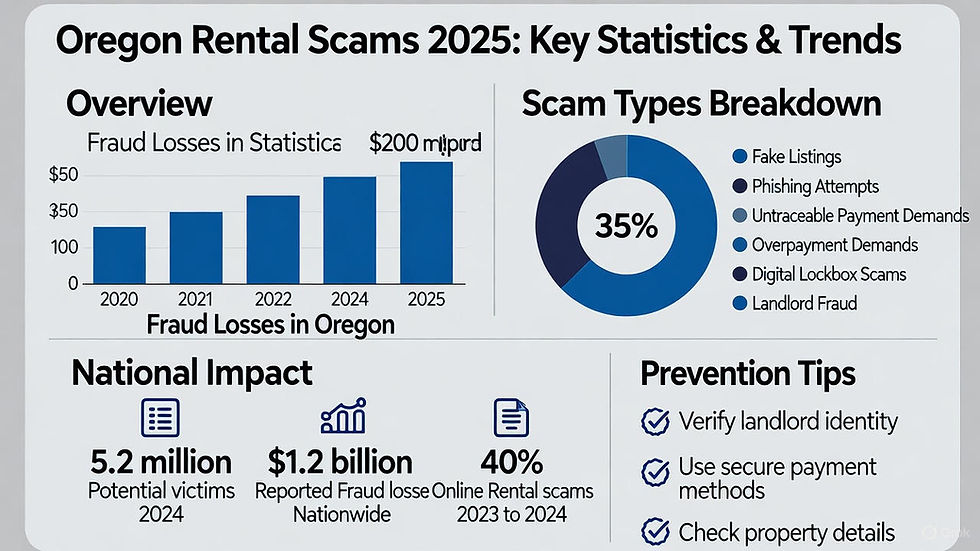Transform Nonprofit Operations with Effective Property Management
- Christian Bryant

- Jul 28
- 4 min read
Nonprofit organizations often face unique challenges when managing their physical assets. From office spaces to community centers and affordable housing units, the efficient handling of these properties can significantly impact the organization's ability to fulfill its mission. Effective nonprofit property management is not just about maintaining buildings; it’s about optimizing resources, ensuring compliance, and creating environments that support the community and stakeholders.
In this post, we will explore how nonprofits can transform their operations through strategic property management practices. We will cover practical tips, legal considerations, and the benefits of partnering with experts who understand the nuances of managing nonprofit properties, especially in the Portland, OR Metro Area.
Understanding Nonprofit Property Management
Nonprofit property management involves overseeing and maintaining properties owned or leased by nonprofit organizations. Unlike commercial property management, nonprofits often have limited budgets and specific goals tied to community service or social impact. This requires a tailored approach that balances cost-efficiency with mission-driven priorities.
Key Responsibilities in Nonprofit Property Management
Maintenance and Repairs: Regular upkeep to ensure safety and functionality.
Tenant Relations: Managing leases and communications, especially if the property includes rental units.
Compliance: Adhering to local laws, zoning regulations, and nonprofit-specific requirements.
Financial Management: Budgeting for expenses, collecting rents or fees, and reporting.
Risk Management: Implementing safety protocols and insurance coverage.
By focusing on these areas, nonprofits can avoid costly mistakes and ensure their properties serve their intended purpose effectively.

Benefits of Nonprofit Property Management for Your Organization
Implementing effective property management practices can bring numerous advantages to nonprofits, including:
1. Maximized Resource Utilization
Nonprofits often operate with tight budgets. Proper property management helps stretch every dollar by preventing expensive emergency repairs and optimizing energy use.
2. Enhanced Community Impact
Well-maintained properties create welcoming spaces for programs and services, improving community engagement and satisfaction.
3. Legal and Regulatory Compliance
Nonprofits must comply with various local and state regulations. Professional property management ensures adherence to these rules, reducing legal risks.
4. Improved Financial Stability
Accurate budgeting and timely rent collection (if applicable) contribute to steady cash flow, enabling better planning and sustainability.
5. Professional Support and Education
Associations like the Portland Area Rental Owners Association provide education, legislative updates, and resources tailored to landlords and property managers in the Portland Metro Area. Leveraging such support can empower nonprofits to manage their properties more effectively.
How much do property managers charge in Vegas?
While this post focuses on nonprofit property management in the Portland, OR Metro Area, it’s useful to understand how property management fees vary in different regions. In Las Vegas, property managers typically charge between 8% and 12% of the monthly rent for residential properties. Some may also charge flat fees or additional costs for leasing and maintenance services.
For nonprofits, understanding these fee structures can help in budgeting and deciding whether to hire a property management company or manage properties in-house. Keep in mind that fees may differ based on property type, size, and the scope of services provided.
Practical Tips for Nonprofit Property Management Success
Managing nonprofit properties effectively requires a strategic approach. Here are actionable recommendations to help your organization succeed:
1. Develop a Comprehensive Property Management Plan
Outline goals, responsibilities, and procedures. Include maintenance schedules, tenant policies, and emergency protocols.
2. Invest in Staff Training and Education
Ensure your team understands legal requirements and best practices. Utilize resources from local associations like PAROA for up-to-date information and training materials.
3. Leverage Technology
Use property management software to track maintenance requests, financials, and tenant communications. This improves efficiency and record-keeping.
4. Regularly Review and Update Policies
Stay current with changes in landlord-tenant laws and nonprofit regulations. Update lease agreements and operational policies accordingly.
5. Build Strong Relationships with Tenants and Community
Open communication fosters trust and cooperation. Address concerns promptly and involve tenants in decision-making when appropriate.
6. Plan for Long-Term Maintenance and Capital Improvements
Budget for major repairs and upgrades to avoid unexpected costs and extend the life of your properties.

Leveraging Local Support for Nonprofit Property Management
Nonprofits in the Portland Metro Area have access to valuable resources that can enhance their property management efforts. The Portland Area Rental Owners Association offers:
Educational Workshops: Covering legal updates, tenant relations, and maintenance best practices.
Legislative Representation: Advocating for landlord and property owner interests in local government.
Forms and Books: Providing standardized lease agreements, notices, and management guides.
Networking Opportunities: Connecting property managers and landlords for shared learning and support.
By engaging with such organizations, nonprofits can stay informed, compliant, and connected to a community of professionals dedicated to effective property management.

Moving Forward with Confidence in Nonprofit Property Management
Effective management of nonprofit properties is a critical component of organizational success. It ensures that physical assets support your mission, comply with regulations, and provide safe, welcoming spaces for your community.
By adopting strategic planning, investing in education, leveraging technology, and partnering with local support organizations like PAROA, nonprofits can transform their property operations. This transformation leads to better resource use, stronger community impact, and greater financial stability.
Take the first step today by assessing your current property management practices and exploring the resources available to you. With the right approach, your nonprofit can unlock the full potential of its properties and continue making a meaningful difference in the Portland Metro Area.







.png)

Comments